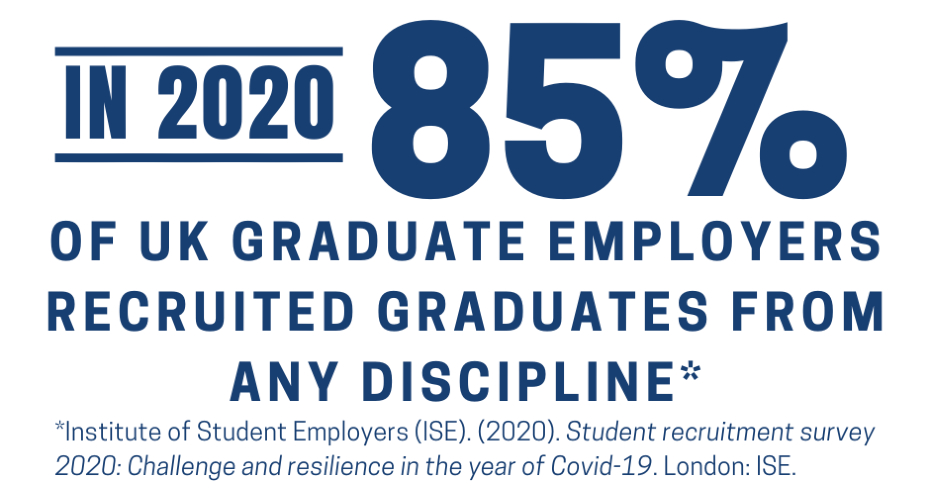
Alexsandra Marzocca, MBA (2021)
'If you can, find a company that will help train and upskill you.'
Senior Sustainability Consultant, ClimatePartner

Tom William Morley, BSc Biological Sciences (2016)
'Be passionate and follow your interests.'
Environmental Consultant, Trium Environmental

What can I do with a degree in Environmental Humanities?
A degree in Environmental Humanities from the University of Exeter equips you with a unique interdisciplinary perspective, blending insights from literature, history, philosophy, and the social sciences to address pressing environmental challenges.
If you would like to learn more about any of the jobs listed below you may wish to browse the job profiles on the Prospects website.
Careers with a degree in Environmental Humanities
Graduates could pursue careers in environmental policy, education, journalism, conservation, cultural heritage, non-profits, and more, where their ability to connect human values with ecological concerns will make a meaningful impact.
Explore some of the careers and employers that recent University of Exeter History and Politics & International Relations graduates have pursued.
In 2020, 85% of UK graduate employers recruited graduates from any degree subject*. This means that they accept and welcome applications from all graduates.
(*Institute of Student Employers (ISE), 2020)
Other resources:
- Employment sector pages
- Prospects to find out more about job profiles
- Graduate Outcomes Data to do a deep dive into the data on what Politics and International Relations graduates do after their degree
- University of Exeter LinkedIn Alumni Tool - this tool allows you to find graduates from your discipline and see their current role and employer. Learn how to use this tool by visiting our LinkedIn page.
- Alumni Profiles database to explore what Politics and International Relations graduates do after their degree
*Graduate Outcomes data taken from full-time, first-degree students completing in 2017/18 to 2021/22.
Employers of Exeter alumni with a degree in Environmental Humanities
Top employers for Environmental Humanities graduates include environmental NGOs like Greenpeace and WWF, government agencies such as the Environmental Protection Agency (EPA), cultural institutions like museums and heritage organizations, sustainability consultancies, educational institutions, and media organizations focused on environmental reporting. Companies in the renewable energy sector, urban planning, and corporate social responsibility roles also value the interdisciplinary skills of Environmental Humanities graduates.
Explore some of the careers and employers that recent University of Exeter History and Politics & International Relations graduates have pursued.
Skills
An Exeter Environmental Humanities degree will support you to develop a range of important transferable skills needed to succeed and thrive in your graduate career.
- Critical reasoning and cultural analysis, exploring and learning with curiosity. Identify, analyse and interpret complex information drawn from a variety of sources.
- Environmental advocacy, empowering you to effectively communicate, analyse policies, engage communities, and develop strategies for driving positive environmental change.
- Appreciate the different factors that influence the activities of groups and individuals in society.
- Prepare and present a coherent argument by selecting and ordering relevant evidence and communicating findings in a structured, with clarity and authority.
- Digital fluency. The ability to use digital tools and platforms, navigate key online platforms, critically evaluate online information, and effectively engage in online communication.
- Conduct qualitative and quantitative research using different tools, such as information and communications technology and sources, demonstrating intellectual rigour throughout.
- Be an innovative problem-solver, formulating and advocating solutions and drawing independent conclusions.
- Proactively collaborate, build authentic relationships, engage in groups, provide constructive feedback and positively influence group direction.
Further Study
Around 22% of University of Exeter graduates go on to pursue further study within 15 months of completing their undergraduate degree*.
Students with a BA in Environmental Humanities can pursue further studies in a diverse range of disciplines, such as an MA or PhD in Environmental Humanities, Environmental Studies, Sustainability, Geography, Anthropology, or Cultural Studies.
They might also explore specialized programs in Environmental Law, Public Policy, Journalism, Education, or Conservation, allowing them to deepen their expertise and expand their career opportunities in academia, research, advocacy, or other professional sectors.
Useful resources:
*Graduate Outcomes data taken from full-time, first-degree students completing in 2017/18 to 2021/22.
